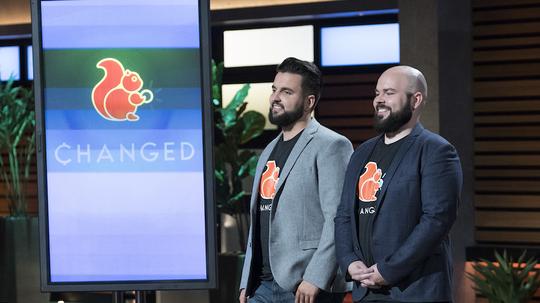
At the onset of the Covid-19 pandemic, nearly every business wrestled with the same question: Is my company in trouble?
Some were. Others surged, especially in the tech and startup sectors, which saw investor money flow in at record rates.
One subsection of startups that found itself caught in the Covid-19 crosshairs all the way into this year is student-loan enterprises. Interest on federal student loans has been on pause since March 2020. Payments are set to resume next month, more than three and a half years later.
The payment pause created an uncertain environment for startups in the student-loan space, from companies that help with repayments to firms that give companies the ability to offer loan assistance as an employee benefit. With borrowers not required to pay back loans, would the services of these companies even be necessary?
"We were worried," said Nick Sky, co-founder and CEO of Changed Inc., a company that offers a student-loan repayment app that helps borrowers pay down debt faster by rounding up their everyday transactions and putting the difference toward their student loans. "We were solving this problem, and when Covid hit in March 2020, this problem was erased from everyone's problem bucket. ... We were like, 'Oh crap, are we going to lose all of our users because they don't have to make payments any more?'"
Changed did lose users, but only about 5%, which Sky said was significantly less than what was expected. The typical Changed user was already pretty savvy about reducing debt, Sky said, and understood that paying down student debt during the pause would only help reduce their principal.

One thing the pandemic did do for Changed's business was prompt it to expand to other debt-repayment areas. Since 2020, the startup has launched mortgage, auto loan, credit card and other types of debt-repayment offerings for borrowers, in addition to student loans.
"One thing I'm grateful for in this situation is it's helped us accelerate our product offerings and roadmap," Sky said. "Now we have a better product for our end users because of it."
Employers see a recruiting tool
One slice of the student-loan space that has taken a hit during the loan-repayment pause has been refinancing firms like SoFi Technologies Inc. The online personal finance company lets borrowers refinance their student loans and other types of debt. Borrowers who refinanced loans with companies like SoFi were not able to pause their payments, given that their loans were no longer federal. But it also meant SoFi had a harder time landing new customers. After all, who would refinance a loan that has a 0% interest rate.
SoFi said in early 2023 that its student-loan business had "declined meaningfully." In March, it sued the U.S. Department of Education to end the pause. It dropped the lawsuit in June.
David Aronson, founder and CEO of Peanut Butter Inc., a software startup that helps companies offer student-loan repayment as an employee benefit, also wasn't sure what was in store for his firm as the loan pause began. But Peanut Butter only lost two clients during the payment pause and it has grown around 50% each year since the pandemic began, Aronson said. It now is nearing 1,000 paying customers who on average contribute $50 a month to an employee's loan repayment.
"We didn’t see employers move away from the benefit," he said. "Employers recognized that the payment pause wasn’t forever. It would come to an end."
For employers that use Peanut Butter, the end game is talent retention. Continuing to help pay down student loans is a competitive tool those companies can use to recruit top workers, Aronson said.
"It continues to be a hot market for talent," he said, "and that's what drives our business."
Peanut Butter, which has raised funding from Steve Case's Rise of the Rest seed fund and Buffalo, New York-based investment firm 43North, is profitable and expects more growth as workplaces hear from more employees about the need for student-loan repayment benefits, Aronson said.
Owners challenged by federal uncertainties
Complicating matters for these and other student-loan repayment startups was the stop-start nature of when interest payments would resume and whether borrowers would see widespread student-loan relief. President Biden planned to forgive up to $20,000 per borrower, but that move was struck down by the Supreme Court in June. Others have called to eliminate student debt altogether.
Changed, which appeared on Shark Tank in 2018 and has raised roughly $3 million to date, has regularly run into roadblocks pitching investors who believe debt forgiveness would make their business obsolete.
"They're like, 'Oh, Biden’s going to forgive the debt. Your company’s not going to exist in a year,'" Sky said. "It was always a challenge to fundraise given our specific problem we were trying to address."
Now, Changed is gearing up for more growth as student-loan payments resume and as its platform supports more than just student debt.
"We’re already seeing people come back and link student-loan debt. We’re expecting another lift in users," he said. "Having these complimentary products for users will retain them longer."




